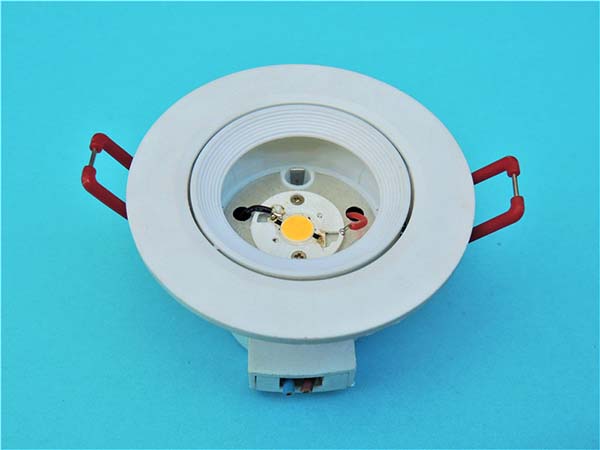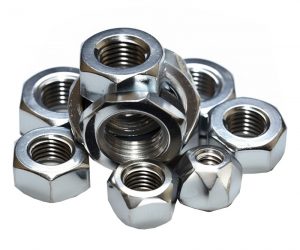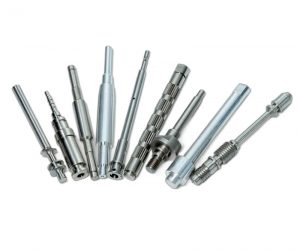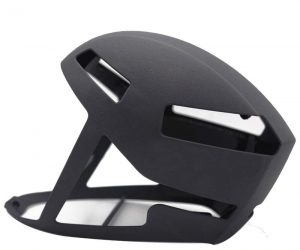Introduction
In the vast world of engineering materials, bakelite round bars hold a unique position. I have had extensive experience working with various materials, and bakelite round bars have often proven to be a reliable choice in numerous projects. Yigu Technology aims to provide you with a comprehensive understanding of bakelite round bars, covering everything from their properties and manufacturing process to applications and how to select the right one for your needs. By the end, you'll be well - equipped to make informed decisions regarding the use of bakelite round bars in your own projects.
What is a Bakelite Round Bar?
Definition and Composition
A bakelite round bar is a cylindrical - shaped component made from bakelite, a thermosetting plastic. Bakelite is formed through a chemical reaction between phenol and formaldehyde under specific conditions of temperature and pressure. This reaction results in a cross - linked polymer structure, which gives bakelite its characteristic properties. The round bar is created by extruding or molding the bakelite material into a circular cross - section. It can come in various diameters and lengths, depending on the requirements of different applications. The base bakelite material may also contain fillers such as wood flour, cotton fibers, or glass fibers, which can further enhance its mechanical properties.
Historical Significance
Bakelite, in general, was a revolutionary material when it was invented by Leo Hendrik Baekeland in 1907. It was the world's first synthetic plastic and marked a significant milestone in the development of materials science. Bakelite round bars, as one of the many forms of this versatile material, quickly found applications in various industries. In the early 20th century, they were used in everything from electrical equipment to mechanical components. Their introduction replaced traditional materials like wood and metal in many cases, offering new possibilities in design and functionality.
Properties of Bakelite Round Bars
Mechanical Properties
Tensile Strength
Bakelite round bars exhibit good tensile strength, which is crucial for applications where they need to withstand pulling forces. The tensile strength of a standard bakelite round bar made with wood - flour filler can range from 30 - 50 MPa. However, when glass - fiber reinforcement is added, the tensile strength can increase significantly, up to 80 - 120 MPa. In comparison, a common softwood bar might have a tensile strength of around 10 - 20 MPa. This makes bakelite round bars suitable for applications where moderate to high tensile loads are expected.
| Material | Tensile Strength (MPa) |
| Bakelite Round Bar (Wood - Flour Filled) | 30 - 50 |
| Bakelite Round Bar (Glass - Fiber Reinforced) | 80 - 120 |
| Softwood Bar | 10 - 20 |
Compressive Strength
The compressive strength of bakelite round bars is also quite impressive. They can withstand significant compressive forces without deforming or breaking. A typical bakelite round bar can have a compressive strength in the range of 100 - 150 MPa. In contrast, some plastics with lower compressive strength may start to deform under much lower loads. For example, low - density polyethylene has a compressive strength of only about 10 - 20 MPa. This high compressive strength makes bakelite round bars useful in applications where they are used as supports or in components that experience compressive stress.
Flexural Strength
Flexural strength is another important mechanical property for bakelite round bars. It determines the bar's ability to resist bending. A bakelite round bar typically has a flexural strength of 50 - 80 MPa. This property is essential in applications such as when the bar is used as a shaft or in structures where it may be subjected to bending moments. Compared to some other materials, like certain types of rubber that have very low flexural strength, bakelite round bars offer much better performance in bending - related applications.
Thermal Properties
Heat Resistance
One of the key advantages of bakelite round bars is their excellent heat resistance. They can withstand temperatures up to 150 - 200 °C without significant softening or degradation of their mechanical properties. This makes them ideal for applications in high - temperature environments. For example, in electrical motors, where heat is generated during operation, bakelite round bars can be used as components without the risk of melting or losing their shape. In contrast, many common plastics start to soften at much lower temperatures. Polypropylene, for instance, has a heat - deflection temperature of around 100 - 130 °C.
Thermal Conductivity
Bakelite round bars have a relatively low thermal conductivity, typically in the range of 0.1 - 0.3 W/(m·K). This means they are good thermal insulators. In applications where heat transfer needs to be minimized, such as in the handles of hot - working tools or in insulating components in electrical equipment, the low thermal conductivity of bakelite round bars is highly beneficial. For example, a bakelite round bar used as a handle for a soldering iron will not conduct heat from the hot tip to the user's hand, providing a safe and comfortable grip.
Electrical Properties
Insulating Properties
Bakelite round bars are excellent electrical insulators. Their volume resistivity can be as high as 10¹² - 10¹⁴ ohm - cm. This property makes them invaluable in the electrical and electronics industry. In electrical switches, circuit breakers, and transformers, bakelite round bars are used to prevent the flow of electricity between different components, ensuring safe and proper operation. In comparison, materials like copper, which is a good electrical conductor, has a resistivity of around 1.7 x 10⁻⁸ ohm - cm.
Dielectric Strength
They also have a high dielectric strength, usually in the range of 10 - 30 kV/mm. This allows them to withstand high - voltage electrical fields without breaking down. In high - voltage power transmission systems, bakelite round bars can be used as insulating supports for electrical conductors. Their ability to withstand high voltages makes them a reliable choice in these critical applications.
Chemical Properties
Chemical Resistance
Bakelite round bars exhibit good chemical resistance. They are resistant to many common chemicals, including acids, alkalis, and solvents. For example, they can withstand exposure to dilute hydrochloric acid and sodium hydroxide solutions without significant corrosion. However, they are not completely impervious to all chemicals. Strong oxidizing agents like concentrated sulfuric acid or nitric acid can attack and degrade bakelite over time. In industrial applications where chemical exposure is likely, such as in chemical processing plants or laboratories, the chemical resistance of bakelite round bars makes them a suitable choice for certain equipment and components.
Manufacturing Process of Bakelite Round Bars
Raw Material Preparation
The first step in manufacturing bakelite round bars is preparing the raw materials. Phenol and formaldehyde are the main ingredients for making bakelite resin. These chemicals are carefully measured and mixed in specific ratios. Fillers, such as wood flour, cotton fibers, or glass fibers, are also prepared. The choice of filler depends on the desired properties of the final product. For example, if high strength is required, glass fibers may be added, while wood flour can be used to improve machinability and reduce cost.
Resin Synthesis
The phenol and formaldehyde mixture is then reacted in the presence of a catalyst to form the bakelite resin. The reaction is exothermic and requires careful temperature control. The resin is initially in a liquid or semi - liquid state and has a characteristic brown color. The reaction conditions, such as temperature, pressure, and reaction time, are optimized to obtain the desired resin properties.
Molding or Extrusion
Once the resin is prepared, it is combined with the filler material. The mixture is then either molded or extruded into the shape of a round bar. In the molding process, the mixture is placed in a mold with a circular cavity and subjected to high pressure and heat. The pressure helps to compact the material and ensure a uniform shape, while the heat cures the resin, making the bar rigid. In the extrusion process, the mixture is forced through a die with a circular opening. This continuous process allows for the production of long, uniform bakelite round bars.
Finishing Operations
After the round bar is formed, it may undergo several finishing operations. This can include cutting the bar to the desired length, machining the surface to improve smoothness and dimensional accuracy, and drilling holes if required. These finishing operations ensure that the bakelite round bar meets the specific requirements of the intended application.
Applications of Bakelite Round Bars
Electrical and Electronics Industry
Insulators and Connectors
In the electrical and electronics industry, bakelite round bars are widely used as insulators. They are used in electrical switches, where they separate live electrical contacts from each other and from the housing. In high - voltage electrical systems, bakelite round bars can be used as insulating supports for electrical conductors. Their excellent electrical insulating properties and heat resistance make them ideal for these applications. Additionally, bakelite round bars can be used to make electrical connectors. The high mechanical strength and good electrical insulation of bakelite ensure a reliable connection and prevent electrical leakage.
Motor Components
Bakelite round bars are also used in electric motors. They can be used as shafts or as components in the motor's housing. The heat resistance of bakelite allows it to withstand the heat generated during motor operation. The mechanical strength of the round bar ensures that it can handle the rotational forces and mechanical stresses in the motor. For example, in a small - to - medium - sized electric motor, a bakelite round bar can be used as a shaft, providing a lightweight yet strong alternative to metal shafts in some cases.
Mechanical and Industrial Applications
Machinery Components
In industrial machinery, bakelite round bars find numerous applications. They can be used to make gears, pulleys, and bearings. The self - lubricating properties of bakelite, along with its good wear resistance, make it suitable for use in gears. In a conveyor system, bakelite round bars can be used as rollers. The high compressive strength of bakelite allows the rollers to support the weight of the conveyed materials without deforming. Additionally, bakelite round bars can be used as handles for various industrial tools. The low thermal conductivity of bakelite ensures that the handle remains cool to the touch, even when the tool is used in hot environments.
Chemical Processing Equipment
Due to their chemical resistance, bakelite round bars are used in chemical processing equipment. They can be used as rods or supports in tanks, pipes, and reactors that contain corrosive chemicals. In a chemical plant, bakelite round bars can be used to hold sensors or other components in place, even in the presence of harsh chemicals. The ability of bakelite to resist chemical attack helps to extend the lifespan of the equipment and reduce maintenance costs.
Consumer Goods
Appliance Handles
Bakelite round bars are commonly used to make handles for household appliances such as stoves, ovens, and toasters. The heat resistance of bakelite ensures that the handle does not get too hot to touch when the appliance is in use. The mechanical strength of the round bar allows it to withstand the forces applied when the handle is gripped. Additionally, the aesthetic appearance of bakelite can enhance the design of the appliance. For example, a bakelite round bar handle on a retro - style toaster can add to its visual appeal.
Musical Instruments
In some musical instruments, bakelite round bars can be used. For example, in certain types of guitars, bakelite round bars can be used as components in the tuning mechanisms. The precise machining capabilities of bakelite allow for the creation of accurate and reliable tuning components. The durability and resistance to environmental factors of bakelite make it suitable for use in musical instruments, which may be exposed to different temperatures and humidity levels.
Choosing the Right Bakelite Round Bar
Consider Your Application Requirements
The first step in choosing the right bakelite round bar is to clearly define your application requirements. Consider factors such as the mechanical loads the bar will experience (tensile, compressive, or flexural), the temperature range of the operating environment, and any chemical exposure it may encounter. For Yigu Technology example, if the bar will be used in a high - temperature, high - stress application in an industrial furnace, you will need a bakelite round bar with high heat resistance and mechanical strength, such as one with glass - fiber reinforcement.
Evaluate Material Quality
When selecting a bakelite round bar, it's important to evaluate the quality of the material. Look for suppliers who can provide documentation on the material's properties, such as test reports for tensile strength, heat resistance, and electrical insulation. Check for any visible defects in the bar, such as cracks, voids, or uneven surfaces. A high - quality bakelite round bar should have a consistent color and texture throughout.
Consider Cost - Effectiveness
Cost is also an important factor. While bakelite round bars are generally cost - effective compared to some high - performance materials, the price can vary depending on factors such as the type of filler, the manufacturing process, and the supplier. Consider the long - term cost of the bar in your application. A slightly more expensive, high - quality bar may be more cost - effective in the long run if it has a longer lifespan and better performance than a cheaper, lower - quality alternative.
Conclusion
Bakelite round bars are a versatile and reliable engineering material with a wide range of applications. Their unique combination of mechanical, thermal, electrical, and chemical properties makes them suitable for use in various industries, from electrical and electronics to mechanical and consumer goods. By Yigu Technology understanding their properties, manufacturing process, applications, and how to choose the right one for your needs, you can make the most of bakelite round bars in your projects. Whether you are an engineer designing a new product or a hobbyist working on a DIY project, bakelite round bars can offer a practical and cost - effective solution. As technology continues to advance, we may see further improvements in the properties and applications of bakelite round bars, opening up new possibilities for their use in the future.



